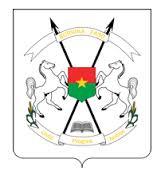Resource information
La présente loi détermine d’une part, le statut des terres du domaine foncier national, les principes généraux qui régissent l'aménagement et le développement durable du territoire, la gestion des ressources foncières et des autres ressources naturelles ainsi que la réglementation des droits réels immobiliers et d’autre part, les orientations d’une politique agraire.Cette loi comprend 358 articles repartis en 9 titres, notamment les dispositions générales (Titre I); domaine foncier national (Titre II); aménagement et développement durable du territoire (Titre III); gestion du domaine foncier national (Titre IV); réglementation des droits réels immobiliers (Titre V); terres du domaine foncier national situées a l’étranger et terres des missions diplomatiques et consulaires, des institutions internationales gouvernementales et non gouvernementales au Burkina Faso (Titre VI); évaluation des opérations foncières et domaniales (Titre VII); infractions et sanctions (Titre VIII); dispositions transitoires et finales(Titre IX).La présente loi abroge toutes dispositions antérieures contraires, notamment la loi n° 014/96/ADP du 23 mai 1996 portant réorganisation agraire et foncière au Burkina Faso.
Abroge: Loi nº 014/96/ADP portant réorganisation agraire et foncière au Burkina Faso. (2008-00-00)



